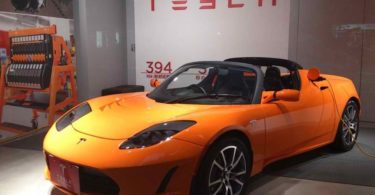Harley-Davidson (NYSE: HOG), the iconic American motorcycle brand, will shift some manufacturing overseas in response to the raising of trade barriers on both sides of the Atlantic.
In a filing made Monday with the Securities and Exchange Commission, Wisconsin-based Harley-Davidson disclosed plans to move some of its manufacturing facilities from the Rust Belt to the Old World in the hopes of avoiding higher costs created by new European Union tariffs that target American-made motorcycles, along with other cultural products like whiskey and blue jeans. Those 25 percent tariffs were imposed last week by E.U. officials in response to the Trump administration's decision to place tariffs on steel and aluminum imported from Europe.
The tariffs will increase the cost of a motorcycle exported from the U.S. to the E.U. by about $2,200 per bike, and would cost Harley-Davidson between $90 and $100 million per year, the company told the SEC.
Passing along that cost to consumers would have “an immediate and lasting detrimental impact” to Harley-Davidson's sales in Europe. Shifting manufacturing to the E.U. will allow the motorbike maker to avoid that hit—although it will take 9 to 18 months to ramp-up international plants, Harley-Davidson says, and in the meantime the company is expecting to lose $30 million to $45 million during the transition.
It remains to be seen whether Harley-Davidson's decision to shift some manufacturing operations overseas will force layoffs at its American plants in Missouri, Pennsylvania, and Wisconsin. Still, it's worth noting that the company has scaled back its American production lines in recent years in favor of opening a new plant in India, where motorbikes are highly sought, to get around a massive import tariff imposed there. Harley-Davidson has plans to open another facility in Thailand for the same reason.
All of which should be taken as pretty solid evidence that raising barriers to trade will ultimately harm American workers. A business like Harley-Davidson gets hit at both ends, as American tariffs on steel and aluminum imports drive up the cost of raw materials used to build motorcycles and retaliatory EU tariffs make it more difficult to sell their products. To hear President Donald Trump explain it, tariffs should force foreign manufacturers to “build them here,” but Harley-Davidson's announcement shows how a trade war will give American businesses a strong incentive to relocate elsewhere.
Of course, Harley-Davidson has the ability to relocate some of it's manufacturing overseas because it's a global brand that sold more than 40,000 motorcycles to European consumers last year. Other firms don't have that choice and won't generate front-page headlines about the pain caused by Trump's trade war.
Few people are talking about businesses like Mid Continent Nail Corporation in Poplar Bluff, Missouri, which announced last week that it would have to lay off 200 workers—about 40 percent of its workforce—before Labor Day due to increased steel prices created by Trump's tariffs. The 25 percent tariff on imported steel makes it impossible for the company to compete with cheaper nails produced in places like China, a company spokeswoman told MissouriNet.com.
The same is true for the 1,500 jobs at three Arkansas-based tire cord manufacturing plants. All three say they will be forced to close their plants unless they can get relief from the Trump administration's steel tariffs.
Those jobs won't be moving overseas. They'll just vanish.







